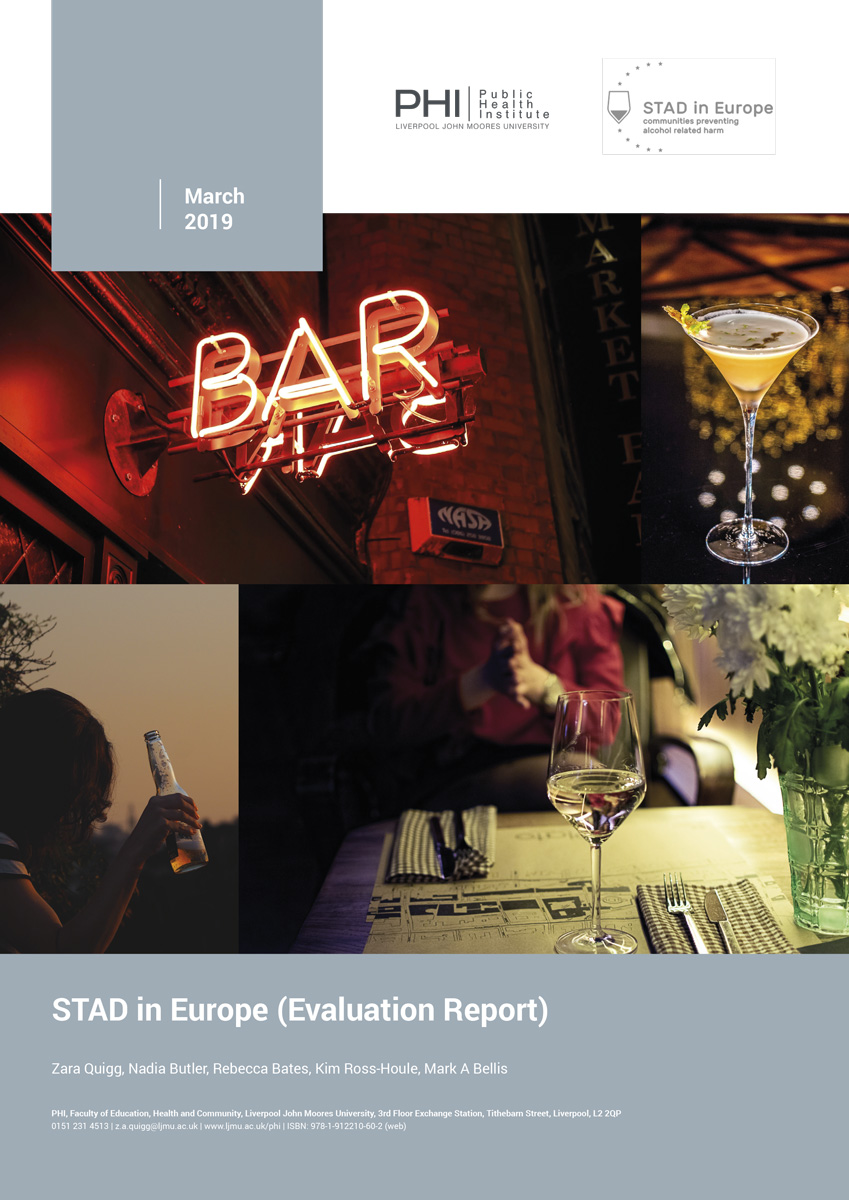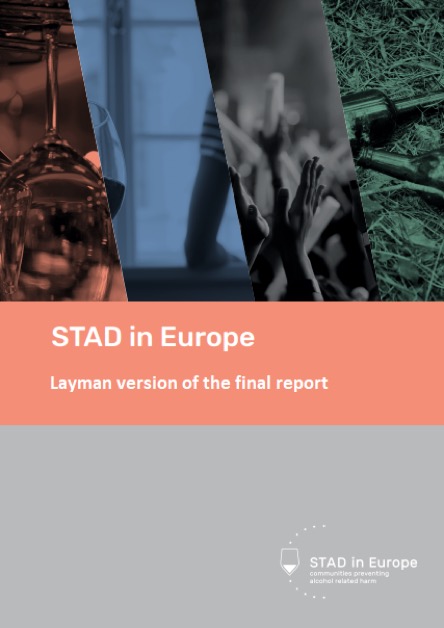Evaluation Report
STAD in Europe Evaluation Report (March 2019)
Quigg, Z., Butler, N., Bates, R., Ross-Houle, K. & Bellis, M.A
Contents
1. Introduction
2. Methodology
2.1 Methods
2.2 Data analysis
2.3 Ethical approval
3. Implementation of SiE pilot interventions – case studies
3.1 Nightlife settings – Valmez, Czech Republic
3.2 Nightlife setting – Kranj, Slovenia
3.3 Festival settings – Hoek van Holland, the Netherlands
3.4 Festival setting – Norrköping, Sweden
3.5 Sports arena setting – Stockholm, Sweden
3.6 Home settings (children) – Kiel, Germany
3.7 Home setting (preloading) – Wrexham, United Kingdom
3.8 Public drinking setting (botellón) – Palma, Spain
4. Implementation of SiE pilot interventions – combined process and outcome findings
4.1 Selecting a drinking setting and pilot site
4.2 Community mobilisation and stakeholder engagement
4.3 Training
4.4 Enforcement
4.5 Resources
4.6 Barriers and facilitating factors
4.7 Outcomes
5. Summary and conclusion
5.1 Implementation of locally-tailored STAD-based interventions across SiE pilot sites
5.2 Impact of the SiE pilot interventions
5.3 Conclusion
6. References
7. Appendices
Layman version of the final report
Key research findings
Implementation and evaluation of STAD suggests that such interventions need to be implemented, adapted and evaluated over a long time period to enable (and evidence) changes in alcohol availability, harmful use and related harms. Six of the seven pilot sites indicated that they would aim to continue to develop and implement their intervention post piloting.
The evaluation of the SiE pilot interventions suggests that the STAD model has the potential to be transferred across different alcohol drinking settings in Europe, particularly across commercial drinking settings. The presence of supporting alcohol legislation, cultures that are supportive of preventing harmful alcohol use and related harms, and multi-agency working can facilitate the development, implementation and potential success of a locally-tailored STAD-based intervention. Even without these factors, components of the model, particularly community mobilisation, can be developed to support future intervention development and implementation. However, piloting across home drinking settings suggests that the STAD model may not be directly transferrable to these settings, particularly relating to enforcement. The SiE project and associated pilot interventions have elicited new knowledge on alcohol across Europe, mobilised communities and raised capacity to address the issue, and for some pilot sites have appeared to start to address factors that promote the harmful use of alcohol. Further implementation and robust evaluation of the pilot SiE interventions is required however to determine the sustainability and the long-term impacts of such interventions across European drinking settings.


